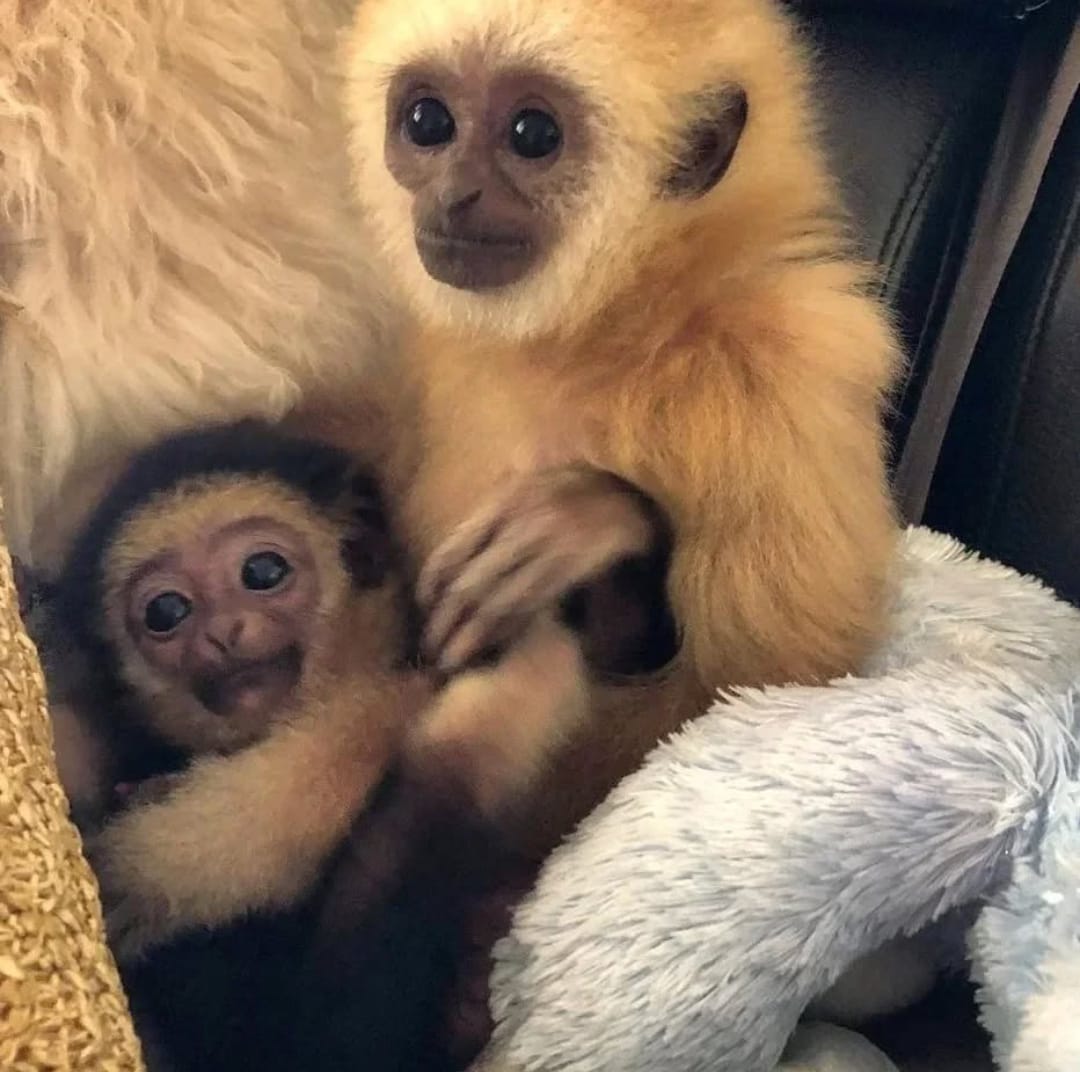Description
Discover the Playful Gibbon Monkey: The Ultimate Guide to Care, Behavior & Legal Ownership
Introduction to the Fascinating Gibbon Monkey
The Gibbon Monkey is one of the most captivating primates in the world, known for its playful personality, acrobatic skills, and melodic calls. While not a traditional pet, the Monkey is sometimes adopted by experienced exotic animal enthusiasts who can provide specialized care. If you’re considering bringing a Monkey into your life, it’s crucial to understand their unique needs, legal requirements, and the responsibilities involved.
In this comprehensive guide, we’ll explore everything you need to know about the Gibbons, including their behavior, habitat, diet, and legal considerations. By the end, you’ll have a clear understanding of whether a Gibbon is the right exotic pet for you.
What is a Gibbon Monkey?
The Gibbon (family Hylobatidae) is a small ape native to the tropical rainforests of Southeast Asia, including Thailand, Malaysia, and Indonesia. Unlike monkeys, gibbons are tailless and are classified as “lesser apes.” They are famous for their:
-
Incredible agility – Masters of brachiation (swinging from branch to branch)
-
Distinctive vocalizations – Often called the “songbirds of the forest”
-
Strong social bonds – They form lifelong pair bonds and live in tight-knit family groups
Physical Characteristics of the Gibbon Monkey
Gibbons are easily recognizable due to their unique features:
-
Size: 10–25 pounds, standing 16–25 inches tall
-
Arms: Extremely long and powerful, perfect for swinging through trees
-
Fur Color: Varies by species (black, brown, gray, or cream)
-
Face: Expressive with small, rounded heads and no tail
Behavior and Temperament of the Gibbon Monkey
Gibbons are highly intelligent, social, and energetic. Here’s what you need to know about their behavior:
1. Playful and Curious Nature
Gibbons love climbing, swinging, and exploring. They require constant mental stimulation to prevent boredom.
2. Vocal and Communicative
Their loud, melodic calls can be heard up to a mile away, used for territory marking and bonding.
3. Strong Social Bonds
In the wild, gibbons live in small family units. As pets, they need constant interaction with humans or other gibbons to thrive.
4. Potential Challenges
-
Territorial behavior – May become aggressive if not properly socialized
-
High energy levels – Require extensive space and enrichment
Gibbon Monkey Care Guide: Housing, Diet, and Enrichment
Owning a Gibbon is a massive commitment. Here’s what you need to provide:
1. Housing Requirements
-
Large, secure enclosure (minimum 30 ft tall for climbing)
-
Outdoor space with trees, ropes, and climbing structures
-
Shelter from extreme weather (heat, cold, rain)
-
Escape-proof design (gibbons are expert climbers)
2. Diet & Nutrition
Gibbons are omnivores with a diet consisting of:
-
Fresh fruits (bananas, apples, berries)
-
Leafy greens & vegetables
-
Protein sources (insects, eggs, occasional lean meat)
-
Avoid processed foods, sugar, and dairy
3. Exercise & Enrichment
-
Daily climbing and swinging opportunities
-
Puzzle toys & foraging activities
-
Social interaction with humans or other gibbons
4. Health & Veterinary Care
-
Regular check-ups with an exotic animal vet
-
Vaccinations and parasite prevention
-
Watch for signs of stress or malnutrition
Legal Considerations for Owning a Gibbon Monkey
Before adopting a Gibbon, you must research local laws:
1. Permit Requirements
-
Many countries/states require special permits
-
Some regions ban private ownership entirely
2. Ethical Concerns
-
Gibbons are endangered in the wild
-
Illegal pet trade contributes to their decline
-
Always adopt from reputable sanctuaries
3. Consequences of Illegal Ownership
-
Fines or legal action
-
Confiscation of the animal
Should You Adopt a Gibbon Monkey? Pros & Cons
Pros:
✅ Highly intelligent & trainable
✅ Form deep bonds with owners
✅ Entertaining & playful
Cons:
❌ Extremely high maintenance
❌ Requires massive space & enrichment
❌ Legal restrictions in many areas
❌ Lifespan of 25–40 years (long-term commitment)
5 Fascinating Facts About Gibbon Monkeys
-
Fastest tree-dwelling mammal – Can swing at speeds up to 35 mph!
-
Monogamous creatures – Often mate for life.
-
Use tools in the wild – Demonstrates high problem-solving skills.
-
Endangered status – Habitat loss threatens wild populations.
-
Unique vocalizations – Each gibbon has a distinct “song.”
Conclusion: Is a Gibbon Monkey the Right Pet for You?
The Gibbon Monkey is a remarkable and intelligent animal, but it’s not a pet for everyone. They require expert care, a massive living space, and lifelong commitment. Additionally, legal restrictions make ownership challenging.
If you’re passionate about primates and can meet their needs, a Gibbon could be a rewarding companion. However, for most people, supporting gibbon conservation efforts or volunteering at sanctuaries may be a better alternative.
Interested in learning more about exotic pets? Visit: exoticpetscare.com for expert guides on responsible exotic pet ownership!







Reviews
There are no reviews yet.